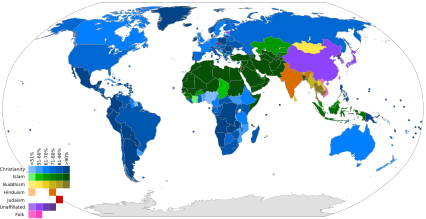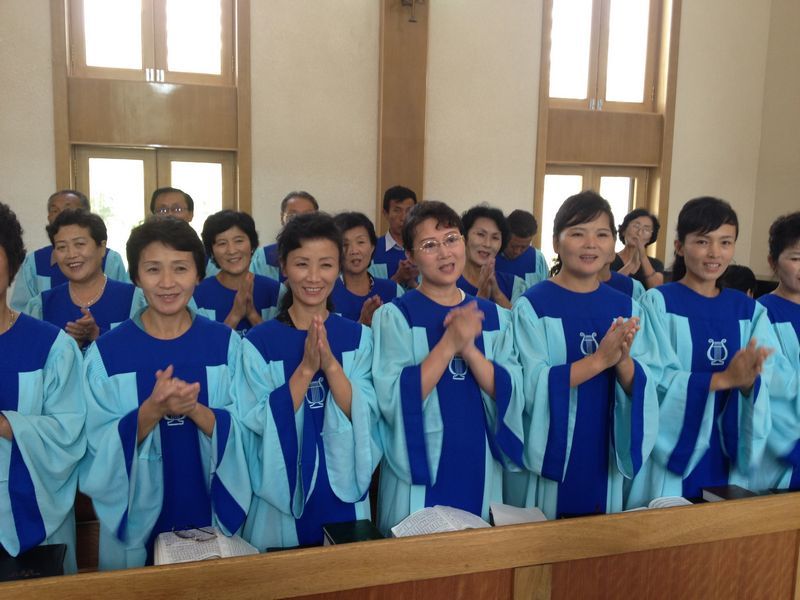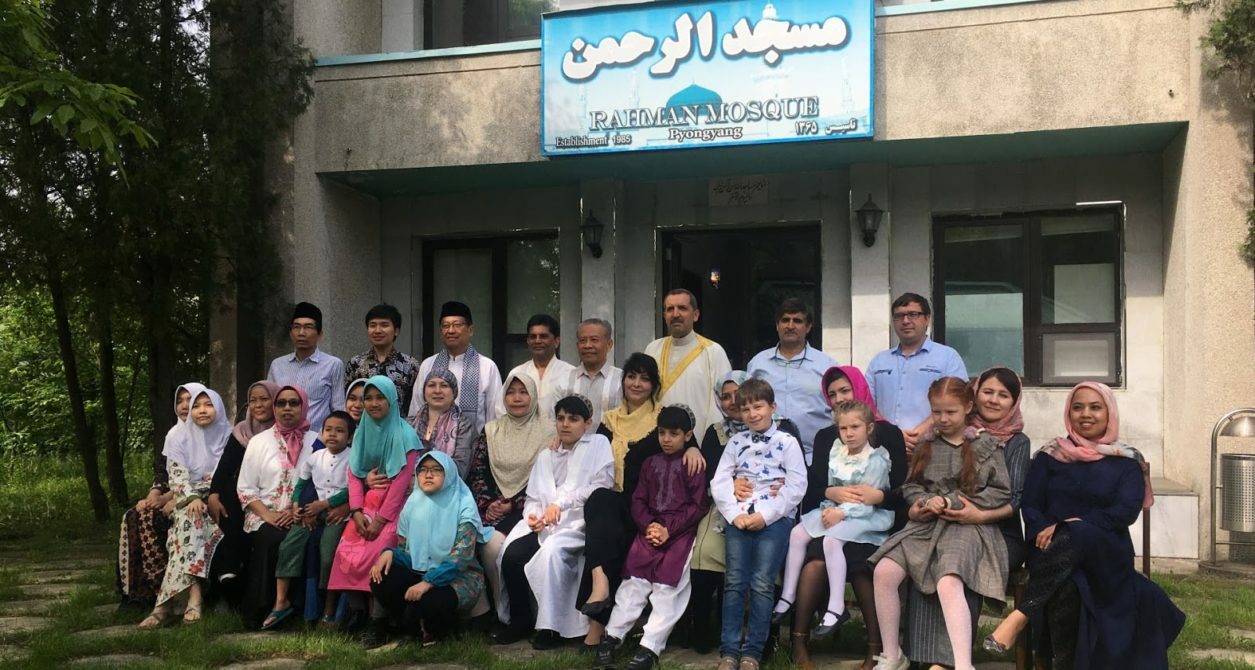More languages
More actions
PuzzledFox99 (talk | contribs) No edit summary |
(Map) Tag: Visual edit |
||
| Line 1: | Line 1: | ||
[[File:Religions by country map.svg|thumb|426x426px|Map of dominant religion by country. Blue: [[Christianity]]; green: [[Islam]]; orange: [[Hinduism]]; yellow: [[Buddhism]]; red: [[Judaism]]; pink: local religions; purple: [[atheism]] or [[agnosticism]]]] | [[File:Religions by country map.svg|thumb|426x426px|Map of dominant religion by country. Blue: [[Christianity]]; green: [[Islam]]; orange: [[Hinduism]]; yellow: [[Buddhism]]; red: [[Judaism]]; pink: local religions; purple: [[atheism]] or [[agnosticism]]]] | ||
[[File:Detailed religion map.png|thumb|335x335px|Highly detailed map showing subdivisions of religions]] | |||
'''Religion''' is a historical phenomenon that develops throughout different stages of human society. The first religions developed during [[primitive communism]] and reflected humans' inability to understand natural phenomena at their low level of production and continued into [[class society]], where the [[ruling class]] often uses it to control the masses. | '''Religion''' is a historical phenomenon that develops throughout different stages of human society. The first religions developed during [[primitive communism]] and reflected humans' inability to understand natural phenomena at their low level of production and continued into [[class society]], where the [[ruling class]] often uses it to control the masses. | ||
Religion continues to exist long after [[socialism]] is | Religion continues to exist long after [[socialism]] is constructed but is predicted to eventually disappear under [[communism]]. Attempts to forcibly suppress religion under socialism are [[Ultra-leftism|ultra-leftist]] and [[Counterrevolution|counterrevolutionary]].<ref name=":0">{{Citation|author=Central Committee of the Communist Party of China|year=1982|title=The Basic Viewpoint and Policy on the Religious Question during Our Country's Socialist Period|title-url=https://redsails.org/on-the-question-of-religion/|pdf=https://www.globaleast.org/wp-content/uploads/2020/02/Document_no._19_1982.pdf}}</ref> | ||
== Under socialism == | == Under socialism == | ||
Latest revision as of 12:24, 6 October 2024


Religion is a historical phenomenon that develops throughout different stages of human society. The first religions developed during primitive communism and reflected humans' inability to understand natural phenomena at their low level of production and continued into class society, where the ruling class often uses it to control the masses.
Religion continues to exist long after socialism is constructed but is predicted to eventually disappear under communism. Attempts to forcibly suppress religion under socialism are ultra-leftist and counterrevolutionary.[1]
Under socialism[edit | edit source]
China[edit | edit source]
The Communist Party of China supports freedom of religious belief, meaning that atheists have a right to become believers and vice versa. It supports separation of church and state and believes religion is a personal choice. Religion is not allowed in schools and it is illegal to force minors to join a church, temple, or monastery. Religious institutions lack the oppressive privileges that they had under feudalism.[1]
Korea[edit | edit source]


The DPRK's constitution guarantees freedom of religious belief and allows citizens to vote and run for office regardless of religion. However, "Religion must not be used as a pretext for drawing in foreign forces or for harming the State or social order."[2]
See also[edit | edit source]
References[edit | edit source]
- ↑ 1.0 1.1 Central Committee of the Communist Party of China (1982). The Basic Viewpoint and Policy on the Religious Question during Our Country's Socialist Period. [PDF]
- ↑ 14th Supreme People's Assembly (2019). Socialist Constitution of the Democratic People's Republic of Korea: 'Fundamental Rights and Duties of Citizens'.
